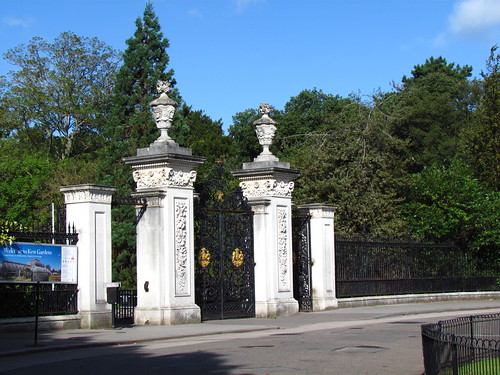
Normal people arriving at Kew Gardens station from central London on the westbound Richmond train will exit by way of the path that goes under the station and out the other side. These normal people then proceed directly to the Garden's entrance at Victoria Gate--a short, charming walk from the station.
People like me, however, exit the station without crossing under the platform and wander endlessly in circles in a foreign land fiddling with some map application on their iPhones hoping they will eventually stumble upon a 300-acre world-renowned national garden that they know must be there somewhere.
So it is that people like me get to see more things than normal people. How many people entering through Victoria Gate would get to see this beautiful succelent planting for example?
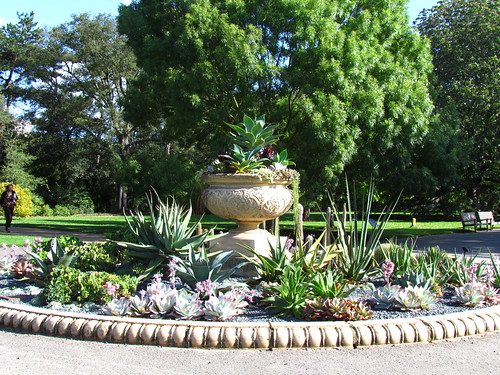
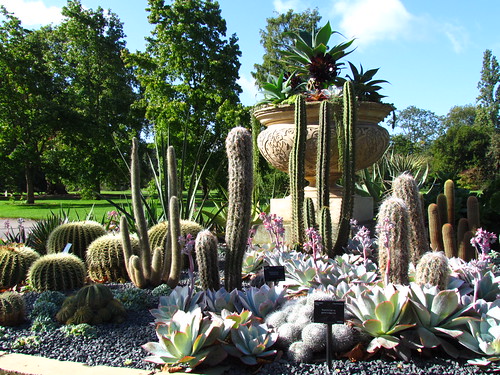
That's Echeveria cante, a new one to me. Do you say "CON-tay"? How are there echeverias in London that I've never heard of or seen in California? It was a very nice echeveria, despite the sense you may have from the direct light exposure in these pictures. I'll bet it would be a great companion for 'Afterglow'.
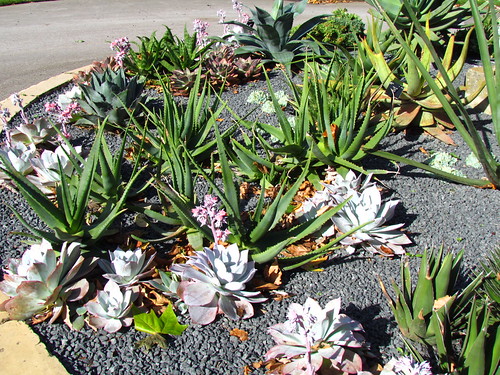
Also near the main entrance: some cool sculpture...
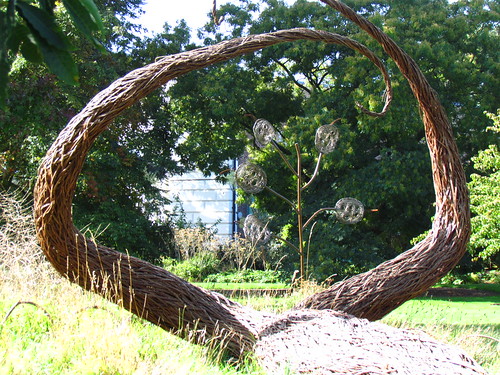
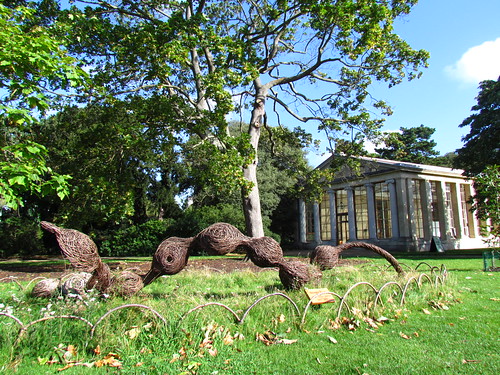
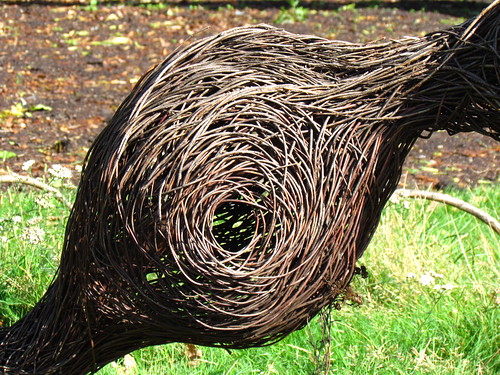
and perennial beds.
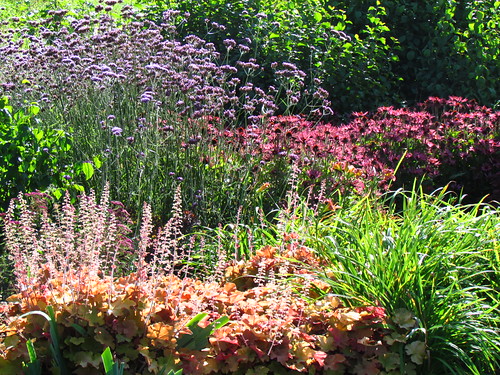
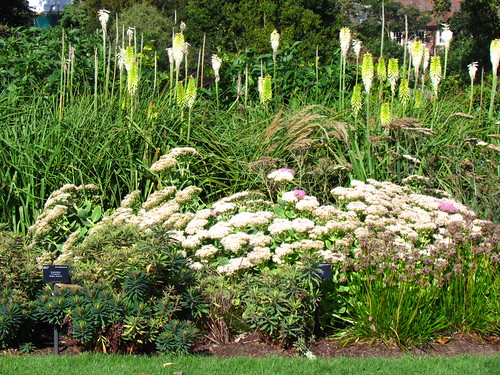
The Princess of Wales Conservatory would normally be the third conservatory one encounters, but for me, coming in the other direction, it was the first.
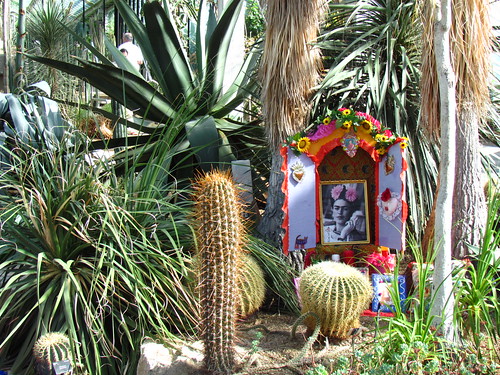
Of Kew's five conservatories, this is the biggest and most diverse. It contains ten different tropical climate types--dry, wet, and 8 microtypes. Each room was incredible, but most of them were quite hot, and I did not feel like I needed to linger long. After all, we have been to the tropics a number of times and I am not a big tropical plant person. So, here are just a few pictures.
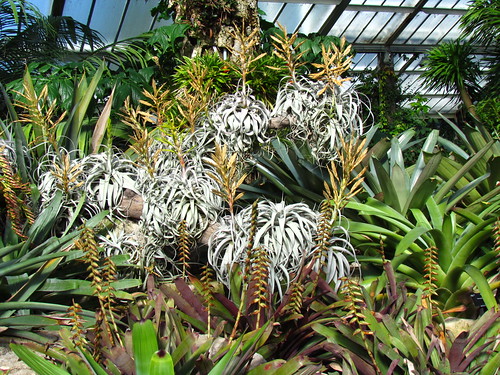
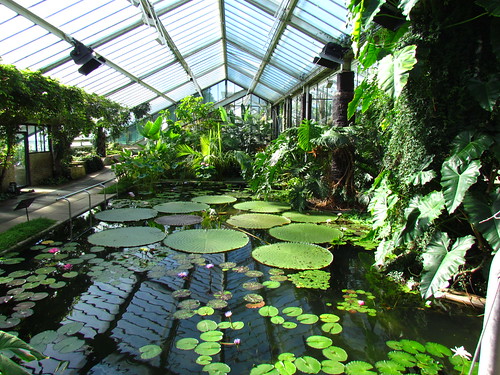
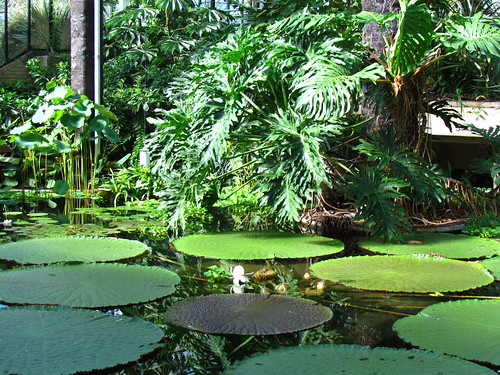
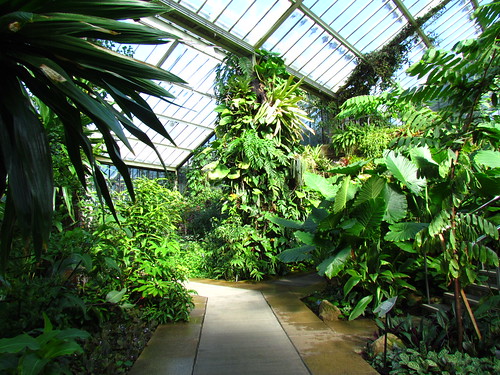
I lingered a long time in the grass garden nearby, seen here with a view of the Alpine House in the background. Note: I visited the apline house and rock garden around it, but by that time the sun had moved into the middle of a cloudless sky and all the pictures are quite hopeless. This blog post contains images from about half of all the gardens I saw at Kew. I'm picking and choosing what I thinks hangs together well as a blog post. Otherwise it would be too much.
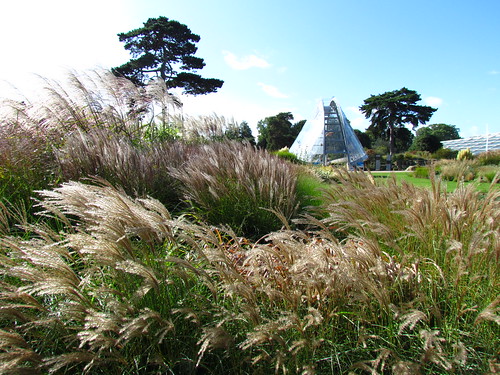
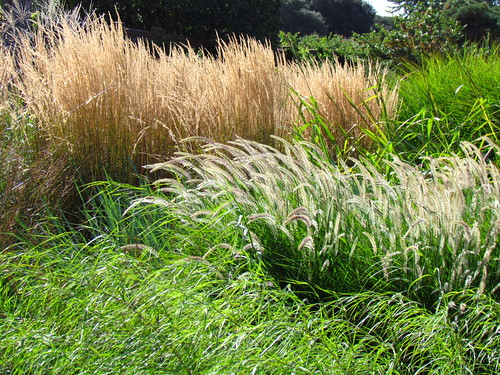
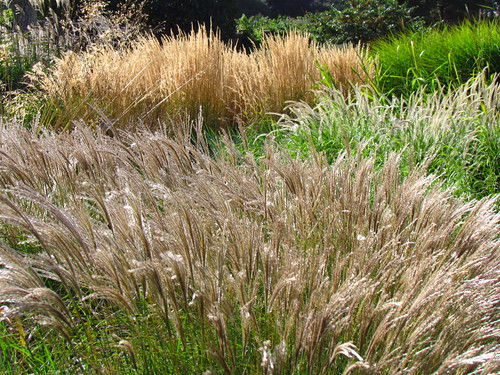
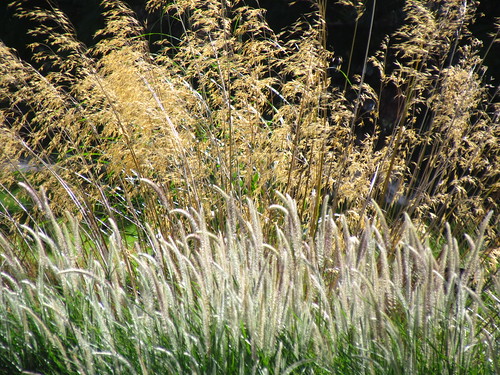
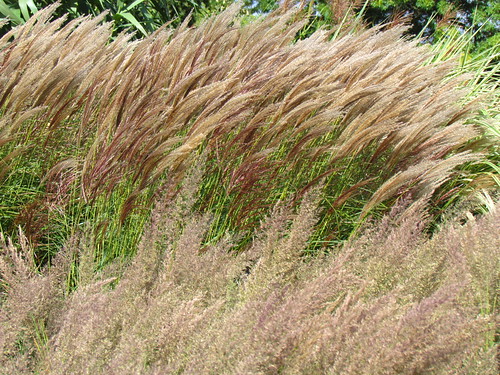
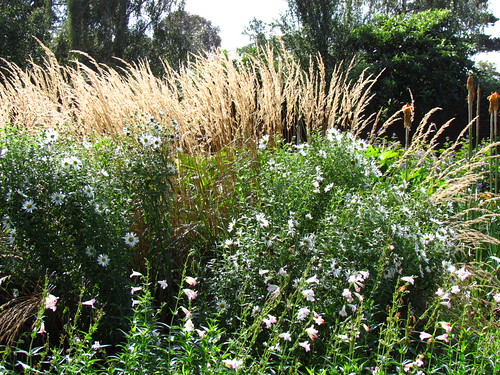
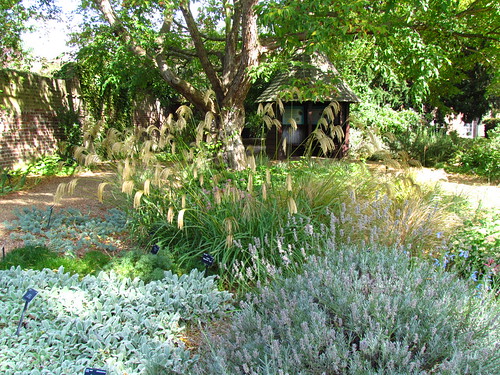
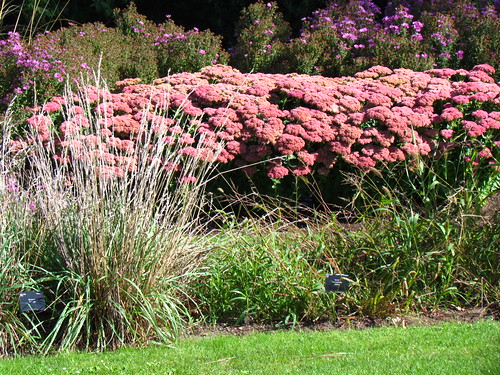
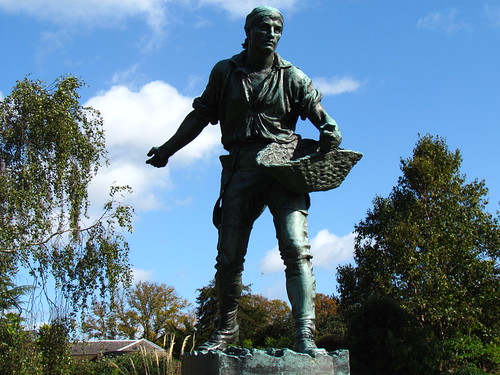
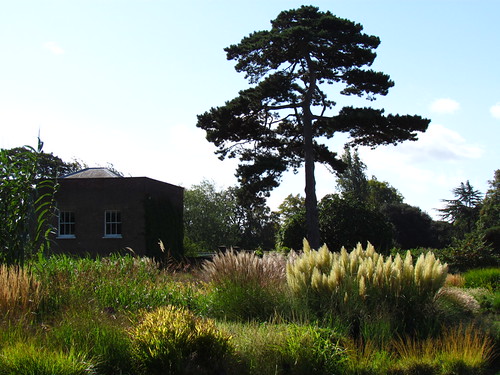
A long row of mature salvias reminded me of home. Does salvia die to the ground in a cold-winter climate?
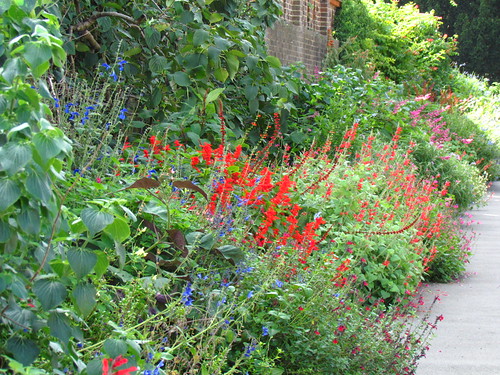
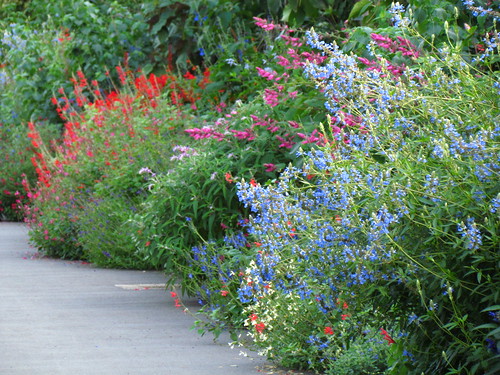
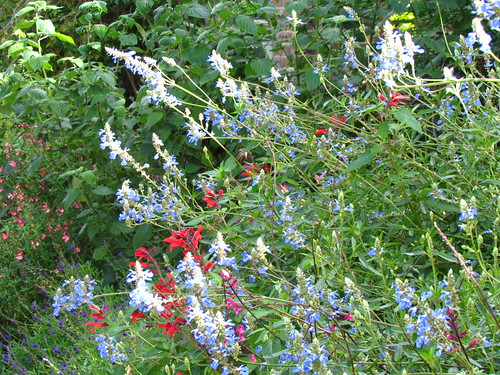
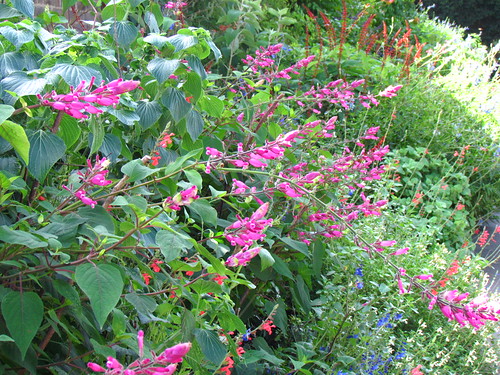
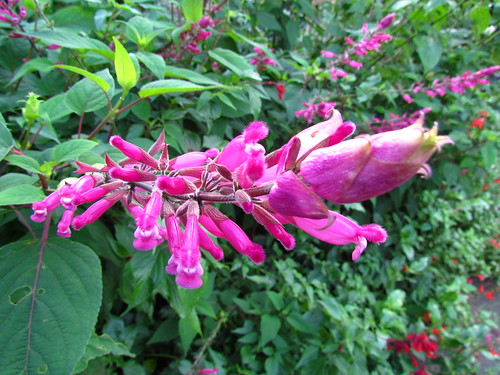
Beautiful, spent verbascum in the Order Garden (beds of plants organized taxonomically) moved me. I stayed in this garden for a long time too.
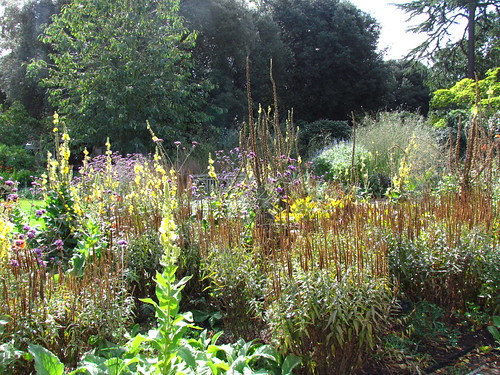
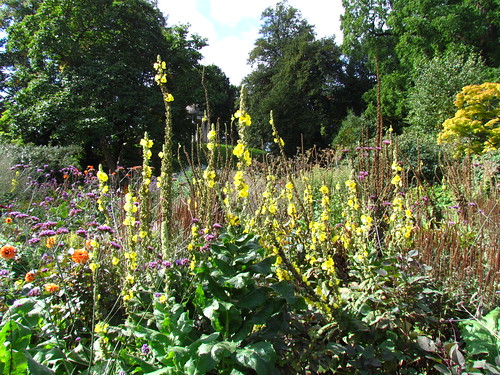
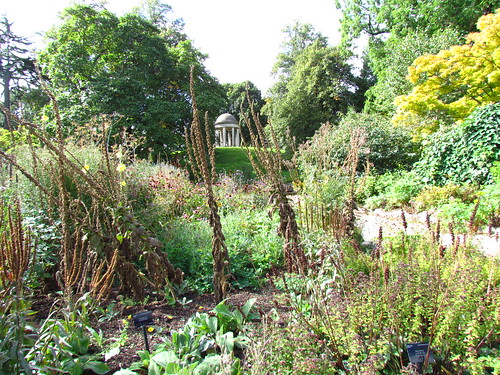
A closer look at the Temple of Aeolus, built in the 1760s:
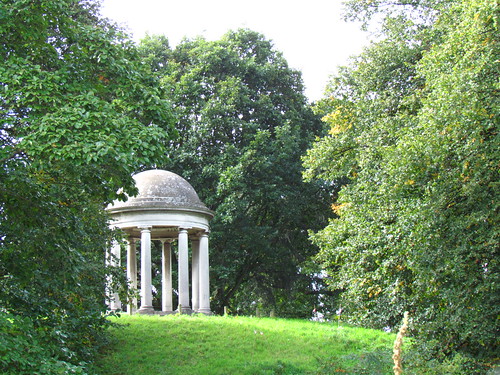
And a few end-of-season shots of the Order Beds:
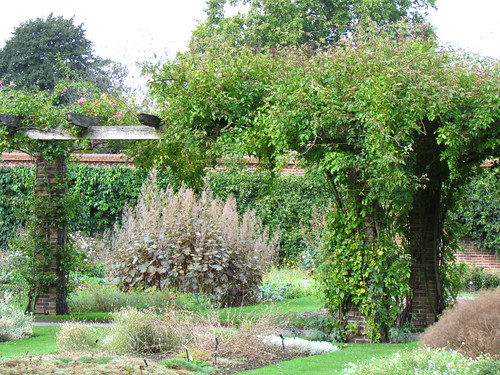
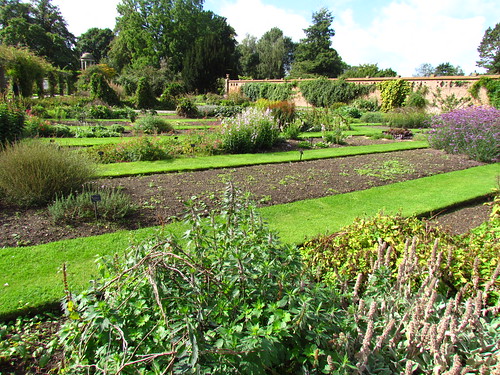
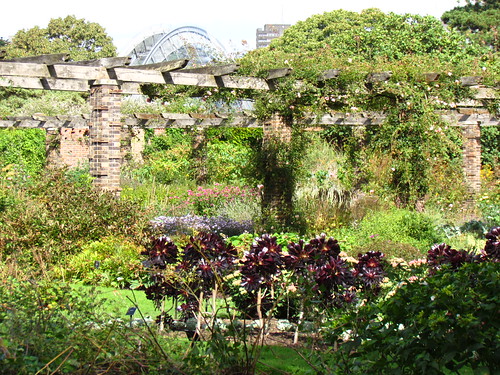
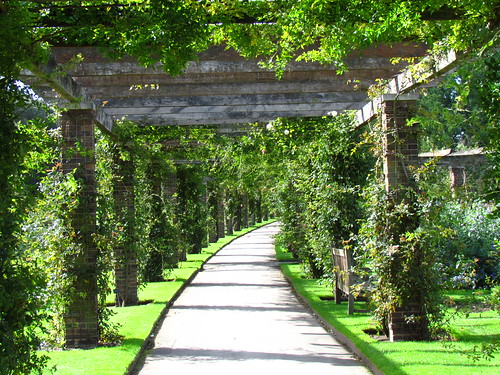
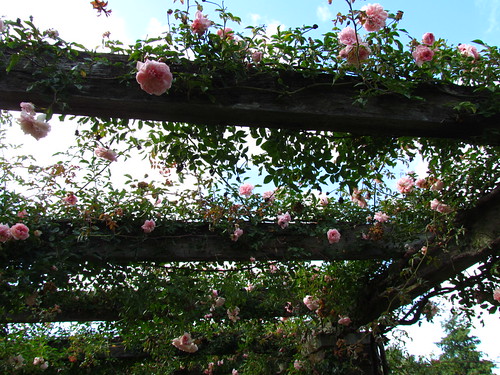
Continuing at a brisk pace, we approach the Palm House parterre, that is, the landscaping around the second Kew conservatory.
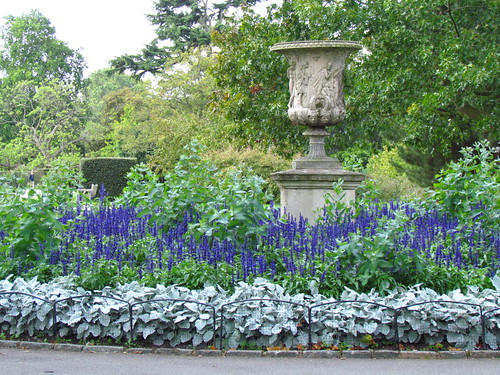
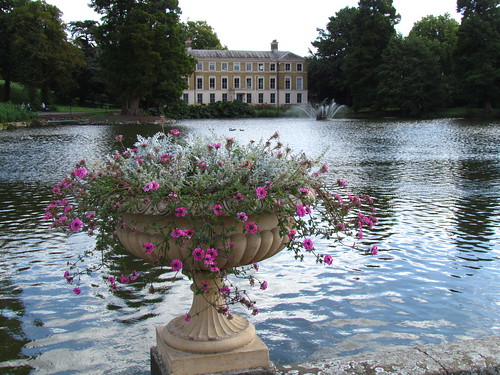
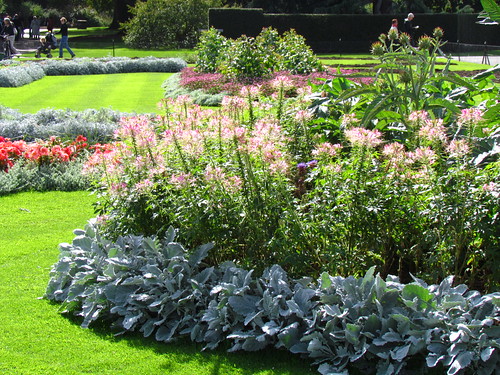
I didn't take many pictures inside the palm house (the humidity kept fogging my camera lens). Behind it, I enjoyed this installation from the Chelsea Flower Show.
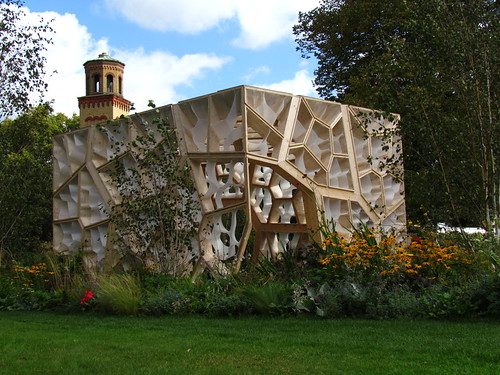
You can watch the designer, Marcus Barnett, discuss this project in a 5-minute video here. He starts to talk about the pavilion's night lighting at the 4:43 mark. Very cool.
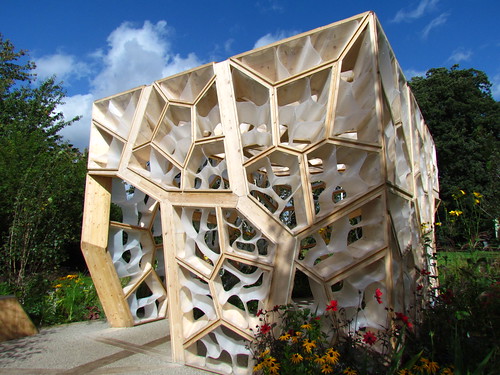
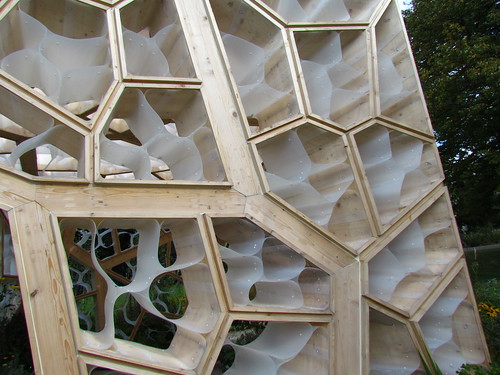
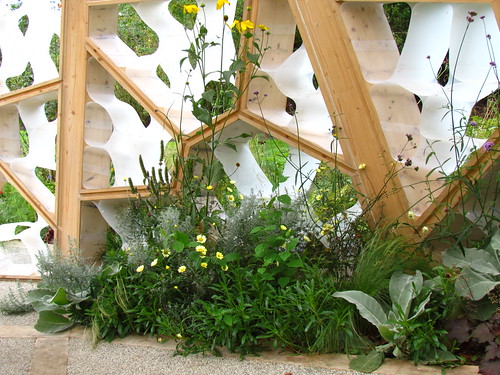
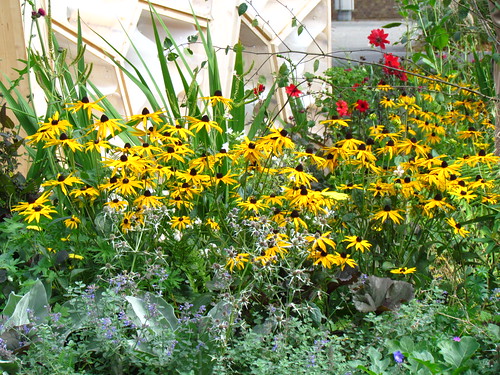
After that, I made my way to the Temperate House. This conservatory is full of plants we grow outdoors in San Francisco and the rest of coastal California where there is very little frost.
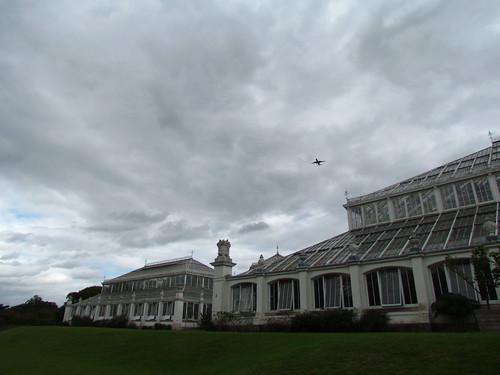
It was like coming home, but with all the plants brought inside.
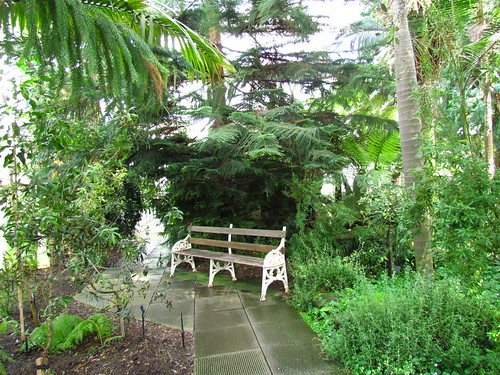
I've never seen princess plant (Tibouchina urvilleana) trained up a post like that before.
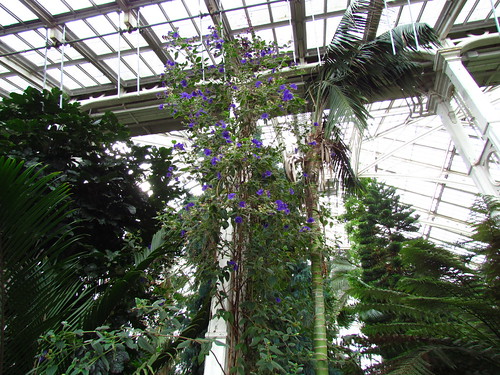
Besides all the familiar faces, what made this conservatory especially fabulous was the catwalk.
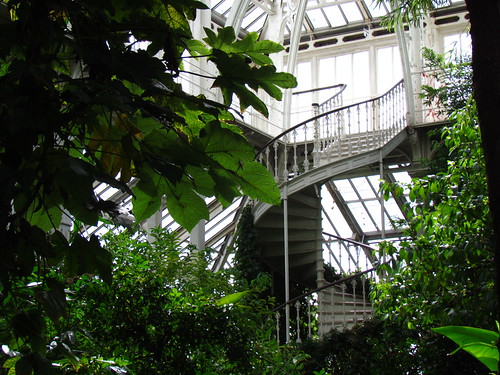
Oh, hell yes.
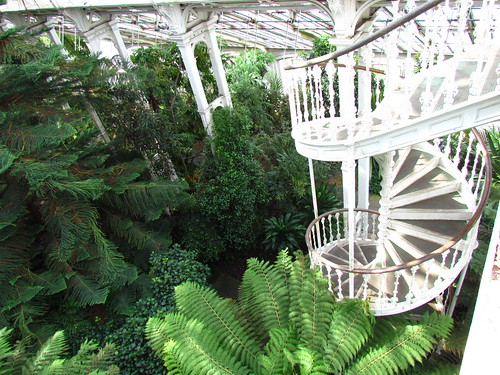
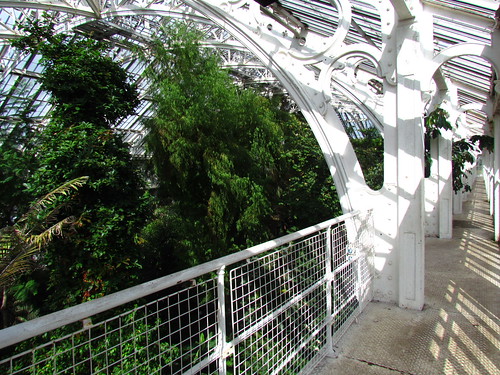
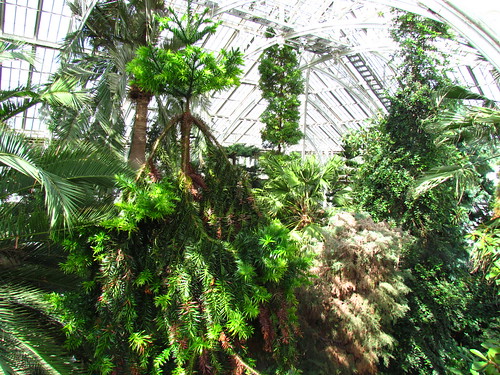
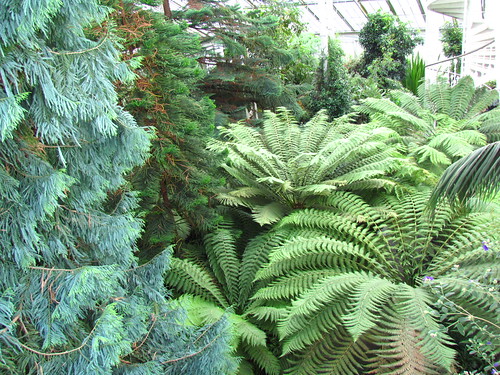
Awesome, right??
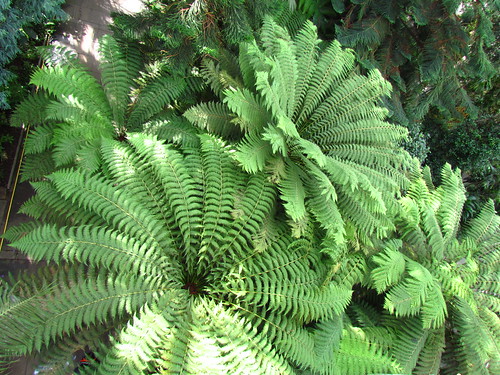
This place raised the bar in how I will judge all glasshouses going forward.
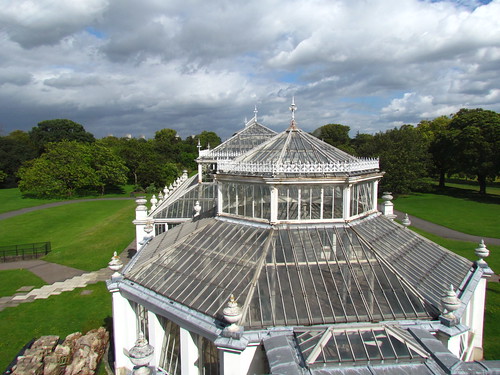
I admit there were some uncomfortable vertigo feelings on the way down.
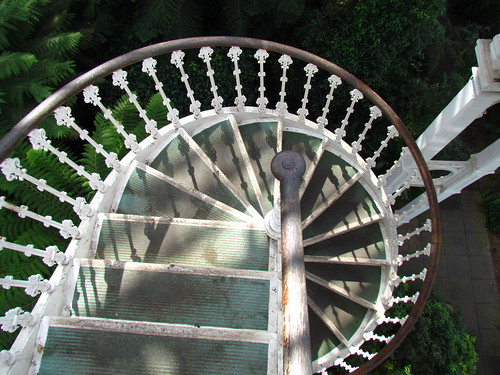
Feet close to the edge, high center of gravity...
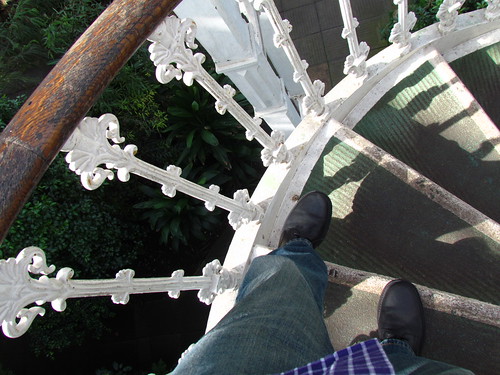
But I managed to make it down without falling over the railing.
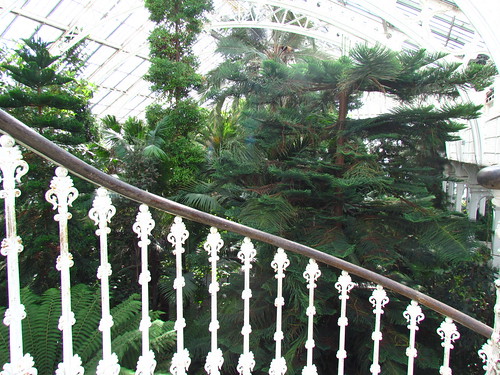
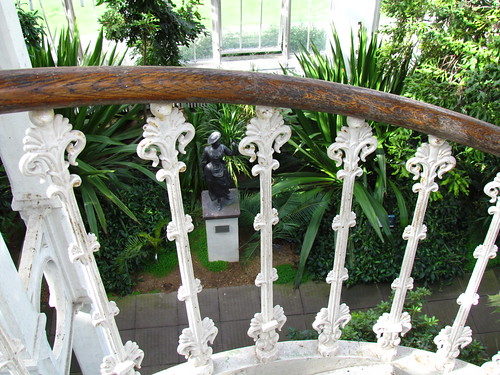
Abutilon in a conservatory.
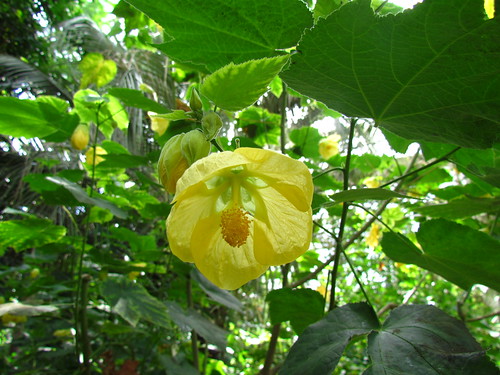
This was the moment when I realized that no how matter beautiful, well-conceived, etc., etc., an English garden may be, achieving happiness with anything less than a full Californian plant palette (all I've ever known) would be a long, uphill struggle for me as a gardener. I mean, I've thought that before but it really hit home right at the moment when I took that picture.
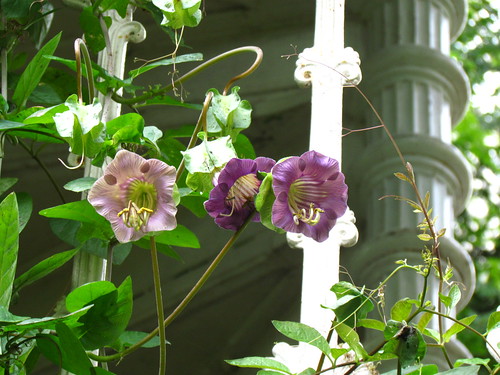
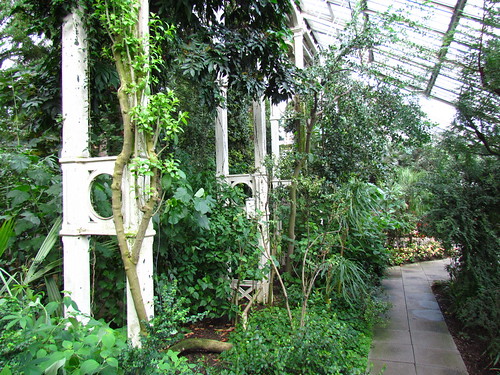
Aeonium with Cedronella canariensis! Nice. I had Cedronella last year. This year I have Cedronella volunteers.
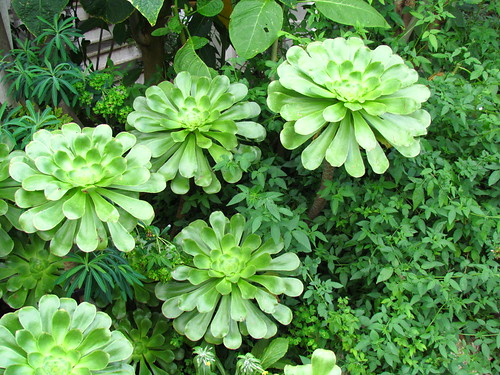
This conservatory even had a South African room.
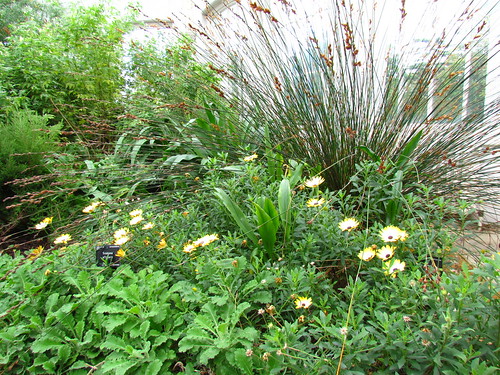
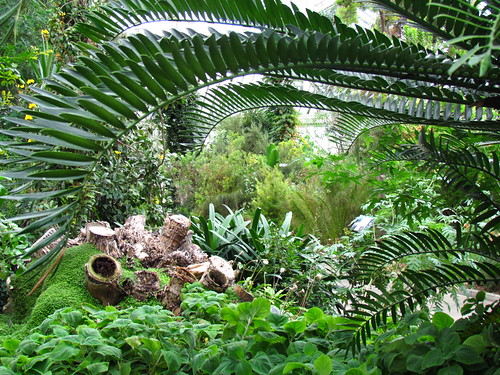
Leucadendron argenteum (off to the left) seemed to be struggling in here. It grows vigorously in my neighborhood.
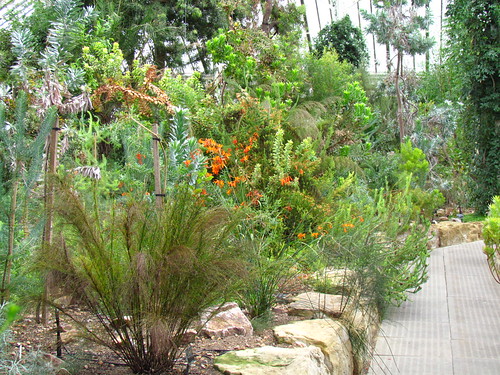
I had one more opportunity to get high at Kew.
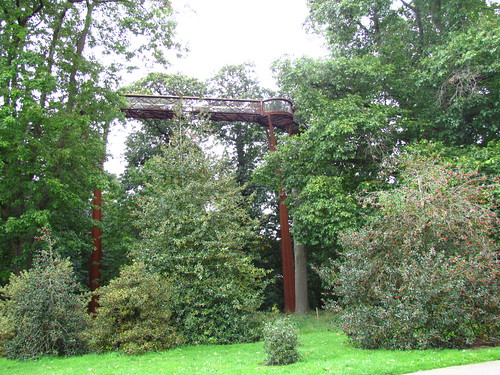
The treetop walkway--designed by the same folks who designed the London Eye--is a great feature.
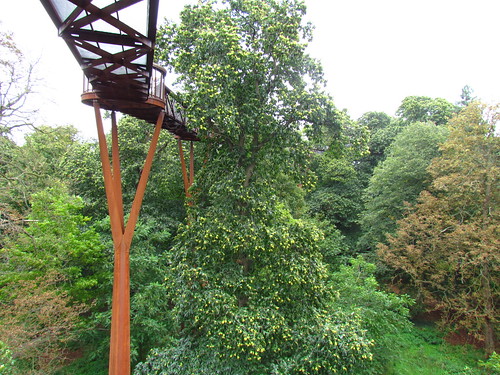
A little wobbly maybe when the wind blows or when other people are walking nearby, but that just adds to the thrill.
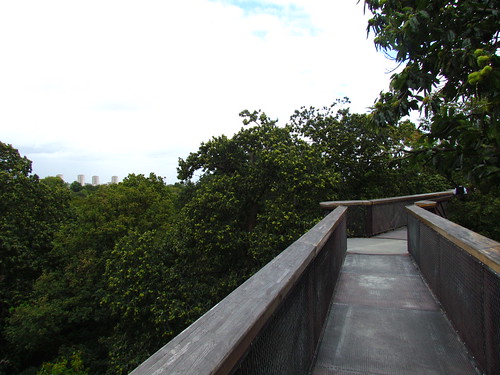
Sweet chestnut (Castanea sativa) seemed to be the main feature. I would add a tulip tree (Liriodendron tulipifera) because you don't usually get to see those flowers from the ground.
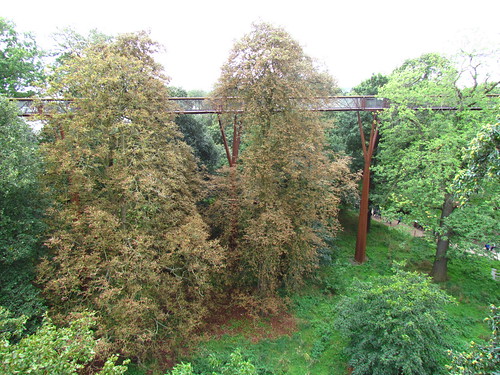
I got off just as the terrorists were getting on.
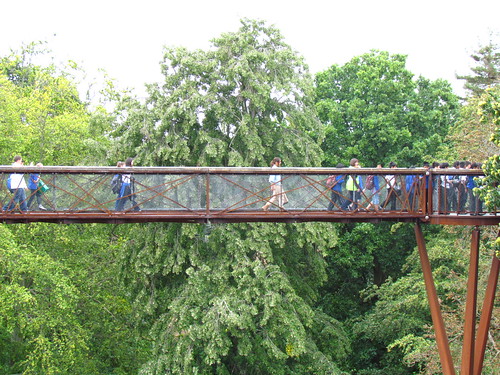
I was in the Mediterranean garden when I decided that I could go no further.
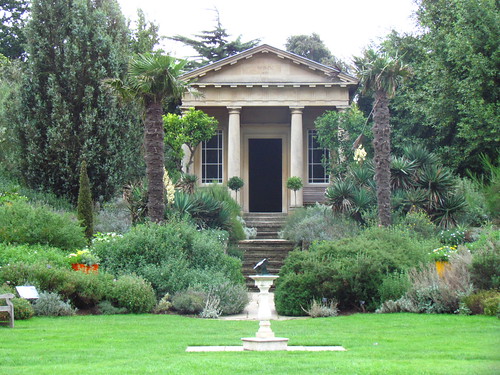
My feet were tired, I was tired, and it was beginning to rain. There was still a bunch of other stuff I wanted to see in the two corners at opposite ends of Kew, especially the Queen's Garden and the Conservation Area. Unfortunately, those will have to wait until another visit.

8 comments:
Best Kew post ever!!! And as a wannabe California gardener I appreciate reading you acknowledge that it's a pretty special place to garden...you lucky duck!
Great to see Kew through your eyes. The treetop walkway is new since I saw it last. Did you visit the Alpine House at all? I don't think I've been inside.
"How are there echeverias in London that I've never heard of or seen in California?" LOL It's Kew! Famous research garden, herbarium, seedbank... There's nothing like it. They still to this day send out plant explorers to the far corners of the world.
"Does salvia die to the ground in a cold-winter climate?" Yes, and some of those salvias are not hardy there. The pink one with the big leaves, for example. Others are not reliably hardy, so they probably take cuttings in autumn and overwinter them in a heated greenhouse.
The Temperate House is fantastic. Not just for the plants but also because the whole structure is built out of castiron. It embodies the boundless optimism and belief in technological advances of that time. You can see how I think that the San Francisco Conservatory in Golden Gate Park is a bit of a let-down, can't you?
I'm loving your photos from the elevated walkway. The tree ferns are beautiful from above.
I wouldn't be surprised if the reason that the Tibouchina urvilleana is trained like a climber, is that it doesn't get enough light, so it's leggy. It's overcast a lot of the time in London, so plants that need a lot of light don't do very well, even if they're hardy.
Thanks for sharing your photos and impressions. Looking forward to more of your European garden posts!
--Mjausson
I have always loved following your travels, but have especially liked this trans-Atlantic series.
I have many fond memories of Kew. I remember especially liking the rock garden/canyon next to the Princess of Wales Conservatory as well as the Temperate House.
While we were in a part of Kew full of Salvias, I ran my hands over Cleary Sage, and for the rest of the day I smelled like an unwashed American. I could not get that funk off of me until we got back to the hotel.
danger--not taking things for granted is a struggle sometimes.
apel--thank you for your enthusiasm and supplemental comments! It's good those salvias grows so fast in spring and summer. By September they look like they've always been there.
Les--Hopefully, we'll go back to the UK for a longer visit and see more. I don't have much more of London to share, unforch.
Wow is about all I can say. It's like you have visited the Holy Grail of botanical gardens. Now I want to go to London.
I kind of hate you right now. I was there when I was an unappreciative, 13 year old. F'ing amazing.
The drifts of grasses were my favorite.
It amuses me to see a giant foothills palo verde seed at Kew Gardens. The sculptor even included the ubiquitous exit hole of the bug that likes to eat the seeds...
http://pathfinderelements.files.wordpress.com/2009/07/palo-verde-seeds.png?w=480&h=360
Post a Comment